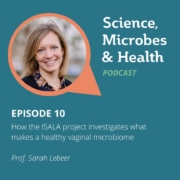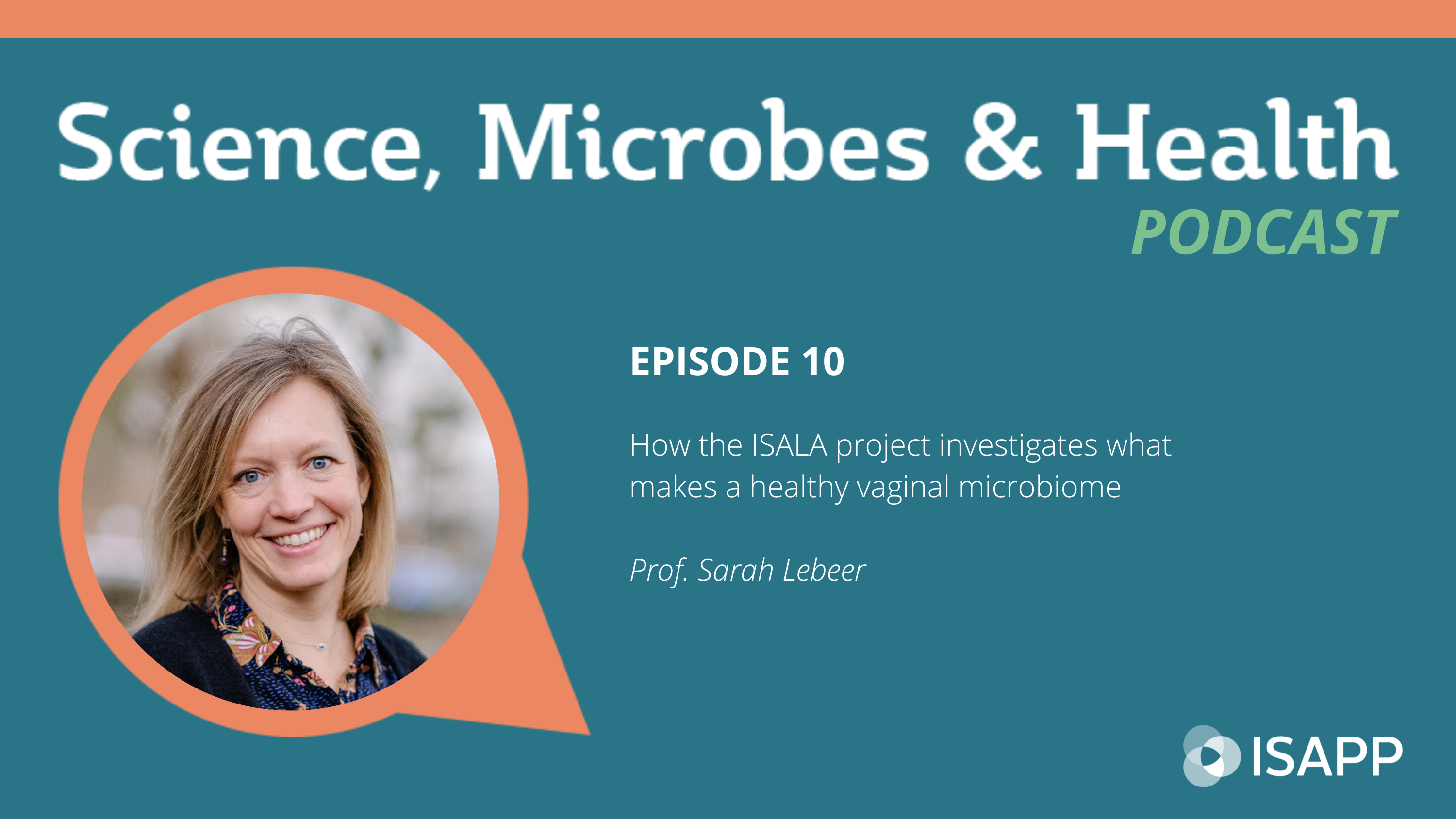Episode 10: How the ISALA project investigates what makes a healthy vaginal microbiome
Podcast: Play in new window | Download
Subscribe: Apple Podcasts | Spotify | RSS
The Science, Microbes & Health Podcast
This podcast covers emerging topics and challenges in the science of probiotics, prebiotics, synbiotics, postbiotics and fermented foods. This is the podcast of The International Scientific Association for Probiotics and Prebiotic (ISAPP), a nonprofit scientific organization dedicated to advancing the science of these fields.
How the ISALA project investigates what makes a healthy vaginal microbiome, with Prof. Sarah Lebeer
Episode summary:
In this episode, the ISAPP hosts discuss what’s known about the healthy vaginal microbiome with Prof. Sarah Lebeer from University of Antwerp, Belgium. Lebeer describes the citizen science project she leads in Belgium called “ISALA” and outlines its findings to date. She also talks about important questions remaining to be answered in the field.
Key topics from this episode:
- The importance and difficulties of leading a citizen science project.
- How the ISALA project is expanding with sister-like citizen science projects around the world.
- Research on the vaginal microbiota is important and fascinating, with a lot of opportunities and a lot of unanswered questions.
- The role of vaginal microbiota in maintaining health and protecting against various infections such as sexually transmitted infections and urinary tract infections.
- What we know about effects of nutrition, behavior, the menstrual cycle, and pregnancy on the composition of the vaginal microbiota, and the stability of vaginal microbes over time.
- Transfer of vaginal species during infant delivery and initial microbial colonization of the baby. Do daughters inherit their vaginal microbes from their mothers?
- How screening of vaginal lactobacilli may create targeted probiotic treatments for particular conditions.
Episode abbreviations and links:
ISALA project website (English)
Important probiotic trials focused on women’s health:
Randomized Trial of Lactin-V to Prevent Recurrence of Bacterial Vaginosis
Trials of vaginal microbiota transplantation:
Vaginal microbiome transplantation in women with intractable bacterial vaginosis
Additional resources:
Citizen scientists step up for a research project on women’s health. ISAPP blog
About Prof. Sarah Lebeer:
Sarah Lebeer is a research professor at the Department of Bioscience Engineering of the University of Antwerp, Belgium. She has studied bioscience engineering, with a specialisation in cell and gene technology/food & health and obtained her Master at KU Leuven (Belgium). In 2008, she obtained a PhD degree with a topic on the mode of action of gastro-intestinal probiotics in inflammatory bowel diseases and a scholarship in the team of Prof. Jos Vanderleyden (KU Leuven). After a postdoc on the interaction between lactobacilli, viruses and mucosal immunology, in November 2011, she was offered a tenure track position at the University of Antwerp. Since then, she is leading the Laboratory for Applied Microbiology and Biotechnology of the ENdEMIC research group. In 2020, she was awarded with an ERC Starting Grant that enables her to gain more in-depth knowledge of the evolutionary history and ecology of lactobacilli (https://www.lebeerlab.com). This rationale was also an important driving force to revise the Lactobacillus genus taxonomy with a large international consortium. Within the ERC project, Sarah has also launched the Isala citizen-science project to gain new insights in the role of vaginal lactobacilli for women’s health (https://isala.be). Since 2018, Sarah is an academic board member of the International Scientific Association on Probiotics and Prebiotics (www.isappscience.org). Communicating about beneficial microbes and probiotics for experts and laymen is an important inspiration for her daily work.






